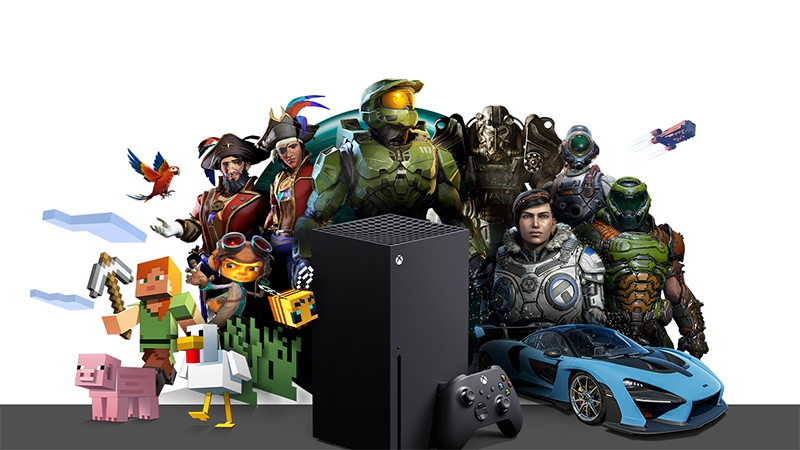Trending
Opinion: How will Project 2025 impact game developers?
The Heritage Foundation's manifesto for the possible next administration could do great harm to many, including large portions of the game development community.
Over on the Xbox Series X|S, unofficial emulators are out as Microsoft cracks down on third-party apps that let players access games from older console hardware.

It's no longer possible to play third-party emulated games on Xbox Series X|S consoles. A recent report from Kotaku reveals Microsoft has made it so that titles running on unofficial emulators can no longer be played on either system.
Emulators have been a quiet part of the game industry for decades. Though often associated with game piracy, emulators function as a vital tool for game preservation, especially since newer consoles can't run every game in an older console's library, and older game hardware gets more scarce by the year.
That said, emulators are also a tricky minefield to navigate for console makers. It's just as possible that Sony or Nintendo could sue Microsoft for allowing piracy to proliferate on its console(s), or the other way around if a PlayStation or Nintendo console had the same emulation functionality.
Previously, players could install emulators that could run older PlayStation 2 and Nintendo GameCube titles on Xbox consoles by gaming the use of UWP apps, a feature now removed from the console's retail mode. Users are now met with an error code telling them those programs "violate Microsoft Store policy."
One person told Kotaku they'd bought an Xbox Series X|S specifically for its emulation capabilities. "Xbox until now has been a really open and welcoming platform for anyone, be it indie devs [or] gaming preservationists," they explained. "It was like the Steam Deck of consoles."
Emulation experts and game preservationists explained that Microsoft gradually began to crack down on emulator programs during summer 2022. During that period, players who'd already downloaded the emulators could still play emulated games, but this latest change means already-downloaded emulators can no longer play games on Xbox Series X|S consoles.
While emulation has been argued as a pro for the game industry, some companies consider it on par with piracy, and work to get rid of them.
A move like this from Microsoft shows that the industry hasn't fully figured out the right way to preserve games in a way that appeases publishers and customers alike. It may be that this tension will just always exist, especially as console makers have an influence over what preservation and game ownership look like.
Last year, software maker Denuvo announced an emulator protector service for the Nintendo Switch console. The program will make it so Switch games can't be emulated on PC, and Denuvo billed it as a way for developers to get more game sales. The belief is, if a game can't be emulated, it can only be gotten through legal means.
Even without Denuvo's help, Nintendo has shown it has no problem suing those it considers pirates, such as those who take advantage of hardware exploits. Even just briefly showing an emulator in a trailer, for instance, may draw the company's ire.
One emulator for the Xbox Series recently had a new version go into beta, and that emulator was said to specifically focus on the Nintendo Wii and GameCube.
It's still possible to run emulators through the developer mode on the Xbox Series X|S. But that function has a paid $20 fee and not available to all owners, particularly those in parts of the world where online payment systems aren't easily accessible.
A spokesperson told the outlet it "continually evolves our mechanisms for reviewing and taking enforcement actions...to ensure alignment with our Microsoft Store Policies. Per 10.13.10, Products that emulate a game system or game platform are not allowed on any device family.”
Speaking to IGN, another spokesperson revealed the actions are "based on a longstanding policy" on content distributed to the Microsoft Store.
However, that spokesperson didn't touch on why it chose until recently to focus on third-party emulators, or why it let the loophole to exist for so long.
You May Also Like